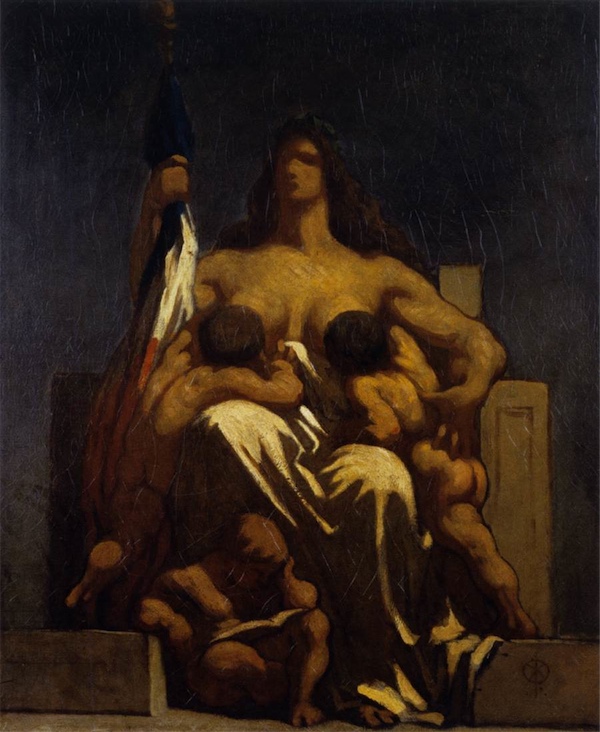
Never shall [I] deflect from the intention to fortify the public liberty by every possible means, and to put it out of the power of the few to riot on the labors of the many. No experiment can be more interesting that that we are now trying, and which we trust will end in establishing the fact, that man may be governed by reason and truth. Our first object should therefore be, to leave open to him all the avenues to truth. The most effectual hitherto found, is the freedom of the press. It is therefore, the first shut up by those who fear the investigation of their actions. The firmness with which the people have withstood the late abuses of the press, the discernment they have manifested between truth and falsehood, show that they may safely be trusted to hear everything true and false, and to form a correct judgment between them… I hold it, therefore, certain, that to open the doors of truth, and to fortify the habit of testing everything by reason, are the most effectual manacles we can rivet on the hands of our successors to prevent their manacling the people with their own consent.
—Thomas Jefferson, letter to Judge John Tyler, June 28, 1804 in The Writings of Thomas Jefferson, p. 1147 (Library of America ed. 1984).
The Bush Administration has passed into history but the forces that sustained it remain powerful and they continue to press for secrecy surrounding misdeeds of the past–the practice of torture and cruelty introduced as policy of the government, lawless surveillance, the crude manipulation of the justice system for partisan political gain. But the struggle to expose these misdeeds is not purely a matter of history, because secrecy provides a cloak that insures continuity–even into a government which on the surface pledges to remedy the abuses of the past. All of this finds a strong historical echo in the dealings of the High Federalist regime between 1798-1800 and the struggles immediately in the wake of the Democratic revolution of 1800 that Jefferson describes in his letter to John Tyler. As he notes, those who fear exposure seek first to silence the press because they fear investigation and exposure of their misconduct. That remains the case, although the tools of the modern era are different. Our media have a wider and deeper reach than the press of Jefferson’s day. In a sense they are more professional and rigorous, because the press of the early American republic was by contrast more deeply engaged in partisan politics, and had a greater appetite for scandal and rumor (though it had a level of energy and vitality that reminds one more today of the Internet than the corporate media). The manacles of the American media of our age are largely of their own making. Corporate consolidation and profit motive have pressed severe limits on serious exposé journalism and lead many journalists to avoid controversy and to pursue the political perspectives and attitudes of their management. Moreover, the journalists of the Washington Beltway today crave access above all other things, and struggling to obtain it they compromise their duty to the public and fail to present news with critical perspective. Too often they keep the secrets of the powerful, forgetting that their duty is to expose those secrets. In this letter Jefferson reminds us that the essential role of the press is to “open the doors of truth,” to insure that the public is well informed of those matters which political figures most desire to keep secret. That exercise is an essential guarantor of our democracy and it must be pursued not merely by the media, but also through Congressional oversight, and investigations undertaken by law enforcement authorities when evidence suggests that the criminal law has been transgressed.
Listen to a performance by Scott Ross of Les barricades mystérieuses by François Couperin from the Second livre des pièces de clavecin (1717), one of the most popular works of the harpsichord repertoire. This is a piece of program music in an early sense, and a great deal has been written speculating about what the title and music mean (not to mention painted—the Belgian surrealist René Magritte took inspiration for one of his more curious paintings from it). It’s at least plausible that the “barricades” of which it speaks are social dividers of the old French régime, though it doesn’t quite have the connotation of social revolution that came beginning in the nineteenth century. But Couperin presents a world in which power rests with those who crave secrecy and privacy.
Listen to the overture to Wolfgang Amadeus Mozart’s opera Così fan tutte (1789) in a performance by The English Baroque Soloists led by John Eliot Gardiner. Writing in the year of the revolution, just as Jefferson departed Paris to assume his duties as America’s first Secretary of State, Mozart describes in musical play a new social force—the power of public opinion. This subtext is introduced in the overture. It begins with the voice of a single oboe, then copied, imitated and passed on through the orchestra–Mozart is talking about gossip as a social force, and a new era in which the opinions of the middle class carry social and political weight. The opera presents Europe in a state of transformation. We see the rise of a new society, one which has as its driving force an intellectually curious and active middle class—the “reading public.” This work is revolutionary in every way, included in its carefully encrypted social message–and it’s about keeping and exposing secrets. Incidentally, as Jefferson writes his letter, the librettist of Così fan tutte, Lorzeno Da Ponte, is moving to New York City, where he was shortly to open the first Italian salumeria in Greenwich Village and become a professor of Italian and classical languages at Columbia University. It’s not surprising that the author of Così finds a more congenial life (though still a life plagued with challenges) in the first modern democracy.



